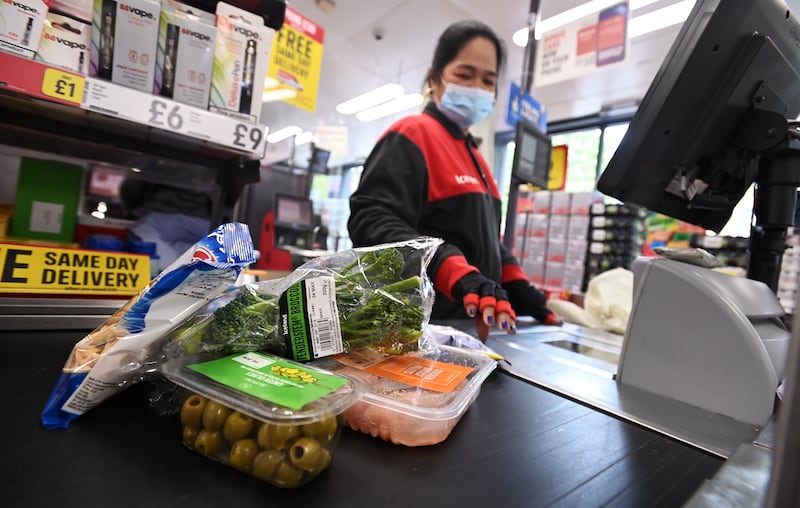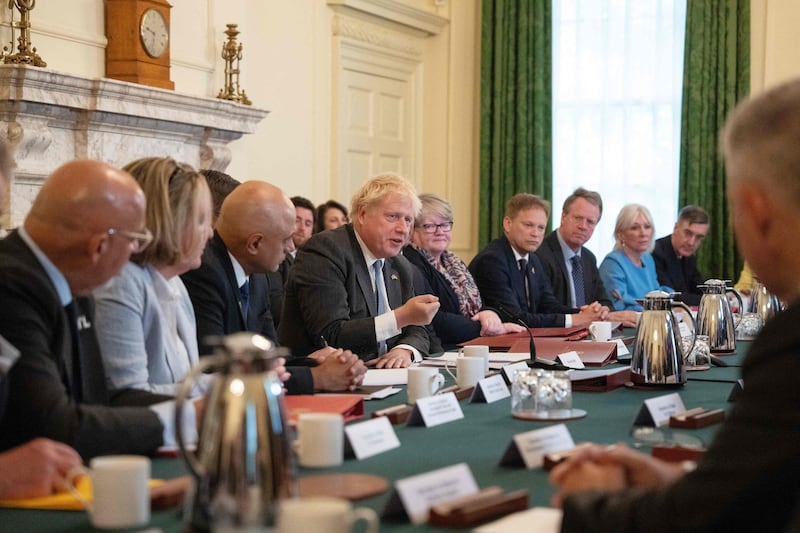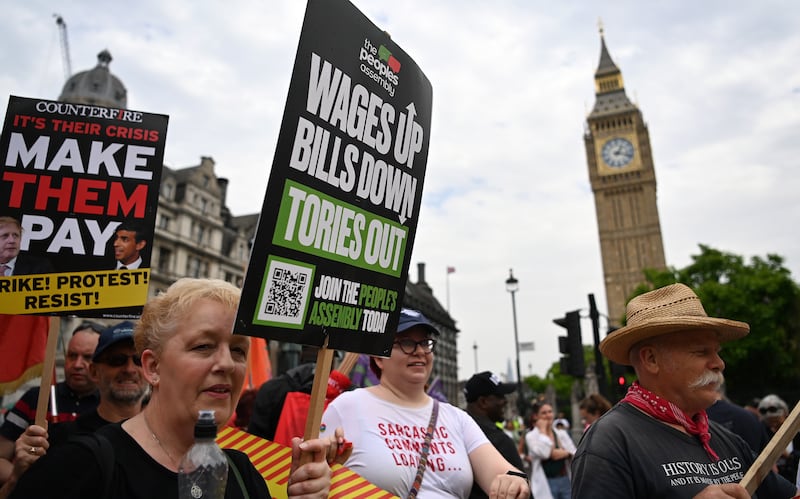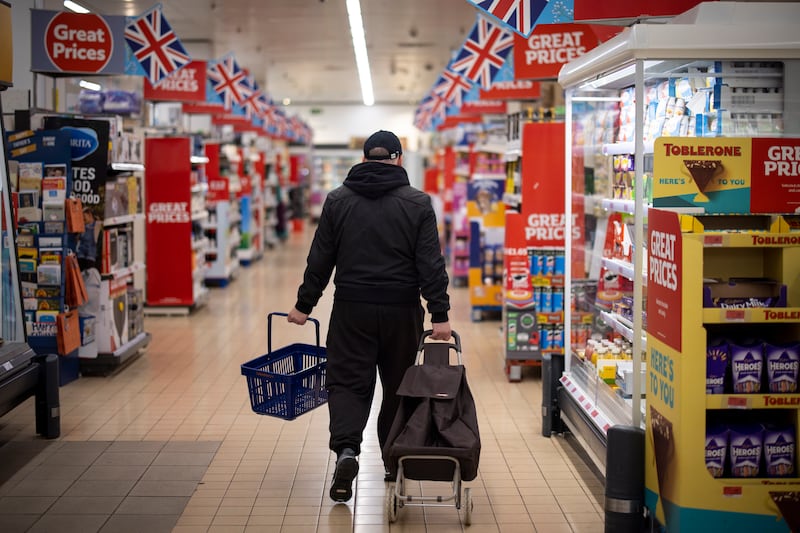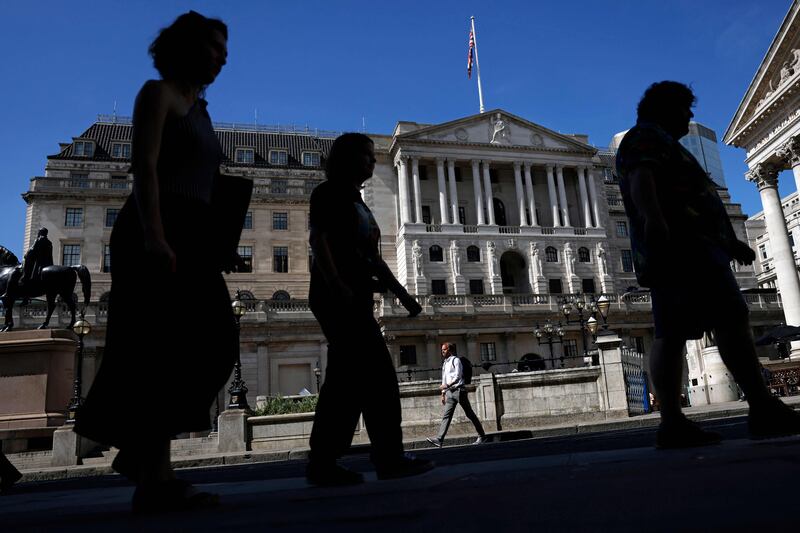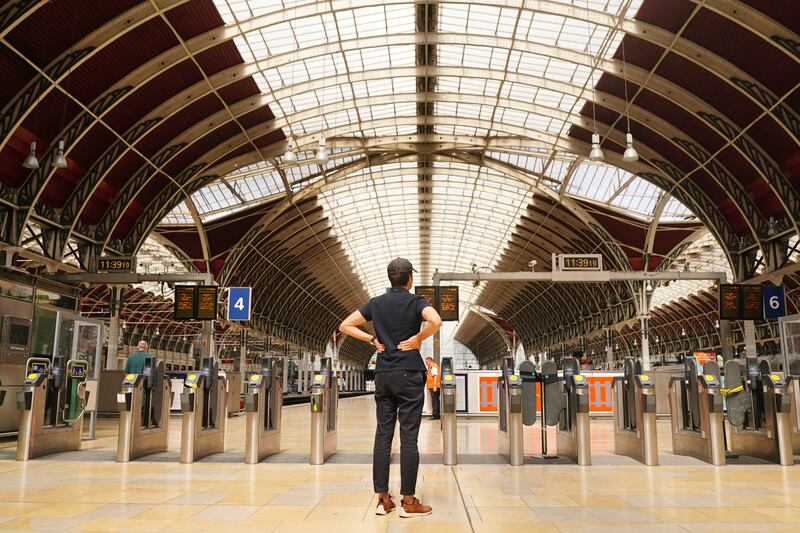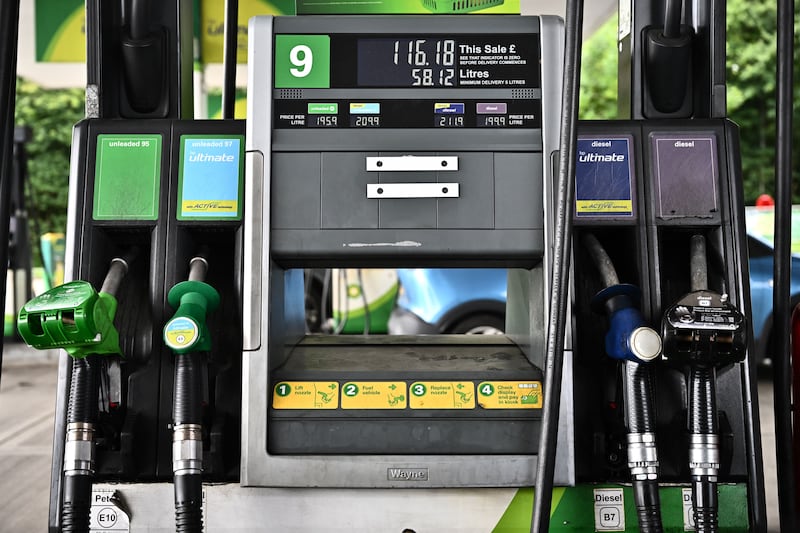The corporate TikTok account for Zilch features brunch plates, tourist trips and snacks for the office dog: buy now, pay later (BNPL) as a lifestyle.
The London-based credit provider, launched about two years ago and now worth $2 billion, says it serves a purpose for both treats and essentials, giving shoppers options to spread the cost of purchases and earn cashback rewards.
TikTok videos from Zilch’s users have different vibes.
“If you’re struggling before payday and need a money hack?? Download Zilch! Game changer,” one caption reads over a video showing milk, coffee, noodles and biscuits. The user added that he makes repayments every two weeks.
@payzilch Don’t forget to treat the dogs too 🐶🐾🦴 #dogsofttiktok #richmond
♬ feels - maddie 🇮🇷
With inflation in the UK now forecast to reach 13 per cent later this year as the country falls into recession, Zilch and its BNPL peers are about to discover how their customers choose to use short-term credit in a downturn.
Michael Quinn, 36, who is unemployed and lives in Glasgow, uses Zilch to split the cost of his groceries and energy bills over six weeks, paying it off with his government benefits.
He started using the service last summer after maxing out his credit cards, which he relied on throughout the Covid-19 lockdowns that began in early 2020.
“With benefits, sometimes it’s hard to have money left over to pay for certain things,” Mr Quinn says.
He admits he got carried away with Zilch at the beginning, racking up hundreds of pounds in debt, and says there needs to be regulation.
Still, he believes it’s better than credit cards, which he’s sworn off for good, once he’s cleared about £2,000 ($2,309) in remaining debt.
Larris Grant, 29, uses Zilch for everything she buys, from groceries and clothes to Amazon deliveries.
“I don’t use it as a lifeline; however, if I did need to, I know I can,” the hotel duty manager says.
Ms Grant signed up in 2021 after receiving a £20 cash-reward link from a friend and now collects cashback on purchases — which isn’t the case with her credit card. This perk helped to pay for her children’s school uniform, she says.
While she doesn’t use it to pay for electricity, Ms Grant says it could prove “handy” as her monthly bill has gone up from £90 to £230.
The UK’s price cap on annual energy bills is expected to jump to nearly £3,600 per household later this week, about triple last year’s level, and comes into effect for the final three months of the year. It’s set to keep rising even further in 2023.
Zilch is only one provider in a booming market for short-term credit.
Sweden's Klarna Bank, San Francisco-based Affirm Holdings and Australia's Afterpay have all picked up millions of new customers around the world in the past few years, though investors have begun to raise concerns about how long some of them can keep growing while also losing money.
Big banks such as NatWest Group are also launching similar products.
One in 12 people turned to BNPL to cover basic costs such as food and toiletries in the six months to March 2022, according to Citizens Advice.
The consumer charity likened this credit to “quicksand” and found young people, those in debt and those out of work or claiming low-income benefits were twice as likely to have used BNPL for essentials than the general population.
To be sure, short-term loans have served a purpose in Britain for more than a century and have a lifespan far beyond online start-ups. In August, Iceland Foods, a UK supermarket chain, launched a BNPL option for struggling shoppers, particularly those finding it hard to make ends meet during the school holidays.
Open the Zilch app and after the cool green welcome screen and spending tracker is a list of thousands of retailers.
Scroll down and supermarkets including Asda and Sainsbury’s appear, as do Deliveroo and Uber Eats, along with travel, beauty and home improvement sites.
Customers are given two options: pay off their purchases over six weeks, with no interest or late fees, or pay immediately and accumulate 2 per cent cashback.
Like some of its rivals, Zilch has affiliate agreements with shops, which pay the company a small fee for customers sent their way.
The app can also be used at other websites that accept MasterCard, with the customer paying a small charge instead — though there’s a list of banned items that includes alcohol, gift vouchers and cryptocurrency. Since its launch in 2020, the FinTech has attracted 2.5 million users.
Bank of England raises interest rates by biggest margin in 27 years
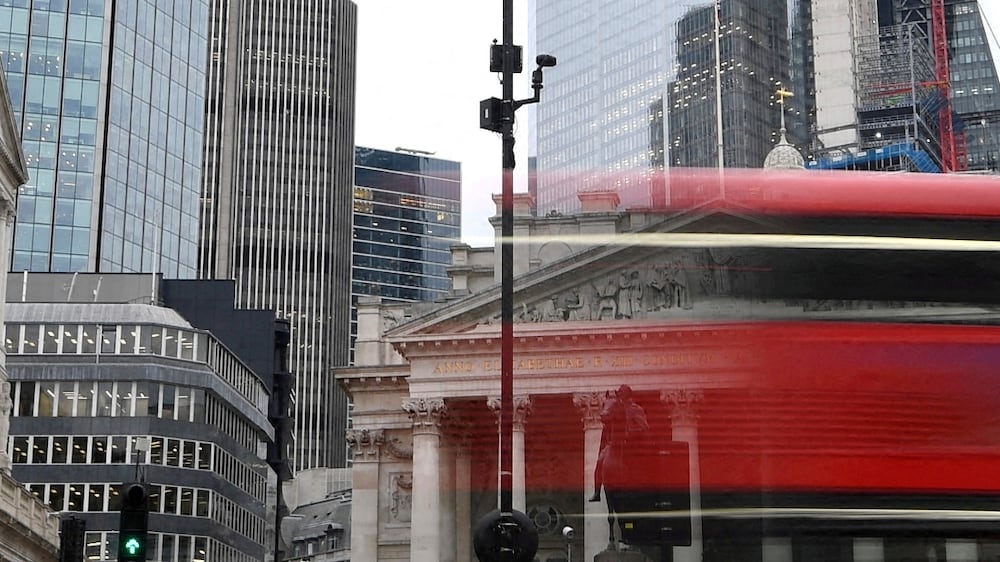
In June, when other FinTechs such as Klarna were watching their valuations crater, Zilch extended its funding round to maintain its value at $2bn. Its most recent fund-raising announcement highlighted “mature customer cohorts now using Zilch daily”.
To celebrate its billion-dollar status, Zilch displays a neon green unicorn at the entrance to its London headquarters.
Chief executive Philip Belamant co-founded the business as an alternative to high-interest loans, believing that customers have been poorly served by an industry that’s barely changed in 80 years.
Zilch’s products “give a customer the most affordable way to pay on credit or debit with the most value back to them”, he says.
Mr Belamant, 37, is proud of Zilch’s status as a regulated company, with a consumer credit licence granted by the UK’s Financial Conduct Authority in 2020. This is unusual in the BNPL industry, which has grown so quickly in part because it’s exempt from regulations on products that charge interest. Mr Belamant says that isn’t “healthy” for the sector.
He’s also aware of the issues that short-term credit can create, noting that Zilch doesn’t allow users to pay off their accounts with a credit card, cycling from debt to debt.
The company works with credit-checking company Experian to ensure customers can afford to borrow. But Mr Belamant is otherwise open to customers using debt to pay for groceries.
“It’s OK for people to buy fast fashion that ends up in a landfill in six weeks’ time. But for food that people need or something that’s essential for their family? No, they should use high cost credit to pay for this,” he says. “We just do not understand how you reconcile that logic.”
Still, there’s been a shift in the way Zilch markets itself. Earlier advertisements had slogans such as, “Have it Now, Pay Later” below hamburgers and pizza. Now, social media posts say: “Please spend responsibly.”
Last week, the Financial Conduct Authority said it was “proactively monitoring” the sector and would use criminal and regulatory enforcement powers if it saw promotions — including posts by social media influencers — that did not include prominent warnings of the risks involved.
Toby King, representative for the Advertising Standards Authority, says BNPL ads must not specifically target vulnerable groups or exaggerate the speed and ease of using a service and clearly spell out all relevant terms and conditions.
The regulator ruled against Klarna in 2020 for sponsored Instagram posts that claimed spending would lift customers’ moods.
Cost of living crisis in the UK — in pictures
“We know that the cost of living crisis is affecting everybody, especially people with lower incomes or poor credit histories,” Mr King says. "That’s why it’s so important that marketers for delayed payment services [BNPLs] advertise soberly, responsibly and accurately."
Consumer charities are already warning of some BNPL customers getting into difficulty.
“We’ve seen a shopper threatened with debt collectors after splitting the payment of a T-shirt and, more recently, a worrying two-in-five BNPL customers borrowing money to make repayments,” says Clare Moriarty, chief executive of Citizens Advice.
People are using credit cards, overdrafts and borrowing from family and friends to pay off their BNPL instalments, according to the consumer charity.
Frontline advisers have seen customers who were unaware they were taking on credit when presented with a “spread the cost” button at the online checkout. Citizens Advice research showed BNPL shoppers were charged £39 million in late fees in the year through to June 2021, with one-in-three users missing or making a late payment.
Almost two thirds of British BNPL users are under the age of 40, according to the Money and Pensions Service, a financial well-being body sponsored by the UK government.
A key concern for chief executive Caroline Siarkiewicz is consumers prioritising BNPL repayments before other obligations such as rent and council tax bills, which was “really damaging for people”.
The lack of regulation in the sector is keenly felt by 25-year-old nursery nurse Chloe Porter, who has been paying off her loans for seven years.
She used Klarna when she was 17, mainly for purchases of £20 or £40.
“It all adds up to this very long-term issue, which can spiral really quickly when you then start receiving angry letters and phone calls,” she says.
By the time she turned 22, she owed £5,000 to Klarna, online retailers Littlewoods and Very, as well as her credit card bill with Capital One — which she had been using to pay off her BNPL loans.
“Not knowing much about credit, I just buried my head in the sand, which is the absolute worst thing to do,” Ms Porter says.
It’s now also a growing issue among the “squeezed middle” age groups, according to Sarah Coles, senior personal finance analyst at investment firm Hargreaves Lansdown. “People think it’s just spreading the cost,” she says. “So they don’t realise that they’re just entering into a borrowing agreement.”
Why is everything so expensive right now?
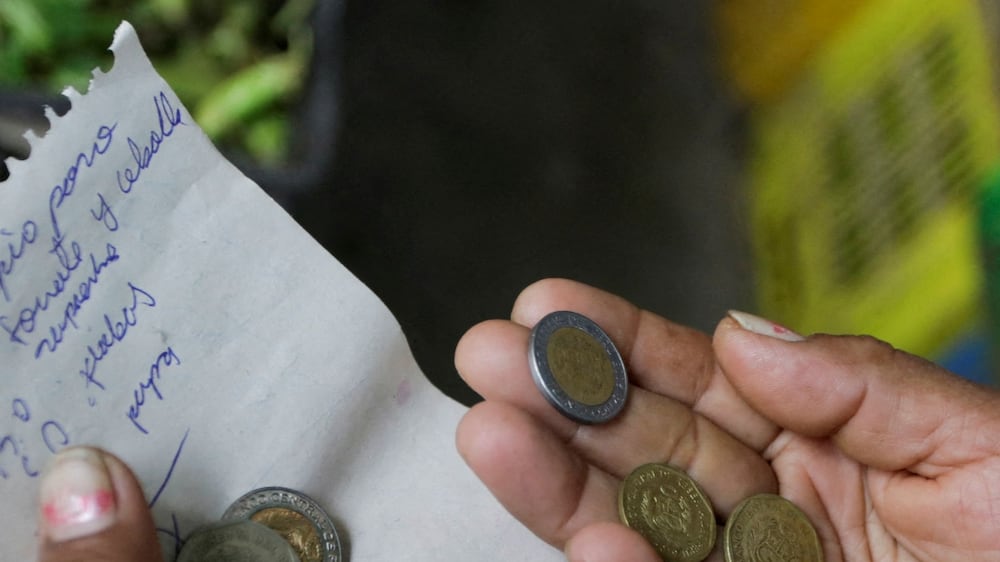
In some cases, the credit products are marketed to people who are less financially resilient, says Richard Lane, director of external affairs at debt charity StepChange.
“They may have started with a buy now, pay later credit; when they realise that they’re struggling to pay, they might have made a payment with a credit card. They’ll then ultimately try to spin the plates and balance for as long as possible.”
It chimes with the experience of David, 36, an aviation worker, who at one point owed £26,000 in payday loans and believes he is now being specifically targeted by BNPL payment options.
He has received text and emails from providers — despite never using them — and fears his details have been flagged as someone susceptible to loans. He did not want to give his surname when discussing these issues.
“I personally view buy now, pay later as a rebadged payday loan,” he says. “It’s a very slippery slope and I found out the hard way.”
